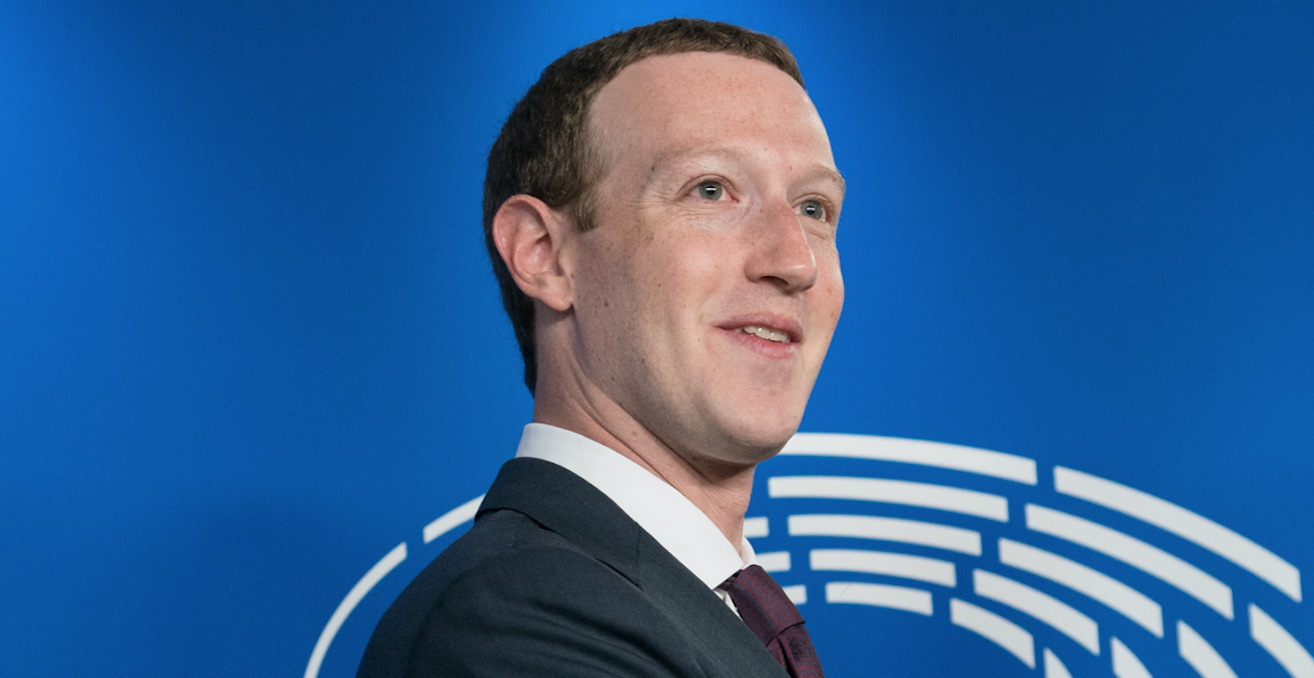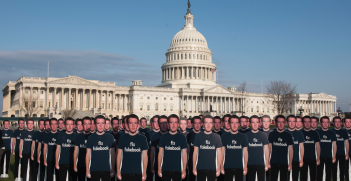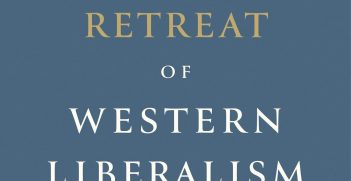Pervasive Racism or American Giants? The Target of France's Hate Speech Law

The “Avia law” is presented as a victory of the French state over Facebook, but it’s unclear if it primarily combats online hate speech or the power of American multinationals.
On 4 July, the French national assembly completed its review of a law to combat online hate speech proposed by Laetitia Avia from the party now in government, La République en Marche (LREM).
The proposed “Avia law” was made possible by the May 2018 talks between Emmanuel Macron and Facebook’s Mark Zuckerberg. This process arises from Macron’s ambitious project to regulate the internet, presented at the UNESCO Forum, “Paris Call for Trust and Security in Cyberspace.” This declaration, which aimed at preventing the use of the internet in international conflicts was another example of Macrons’ ambitious foreign policy. This is a policy that aims to re-establish France as a major power in the international sphere: a quasi–Gaullist quest for “greatness,” but using the linkages offered by the European Union to amplify French influence.
In this spirit of greatness, the Avia law on hate speech has been presented as a world first, as a victory of the French state over Facebook. It gives the French state the power to require online platforms such as Facebook to remove, within 24 hours, content deemed to constitute hate speech. More importantly, it requires Facebook provide the French state with the Internet Protocol addresses of people in France suspected of using hate speech. This, as the French parliamentary undersecretary for the digital economy Cédric O stressed, is a privilege that was first granted to France, differentiating it from its German precursor, the 2018 “NetzDG” law. Critics will see this law as another manifestation of the French political elites’ tendency to see Germany as a model to emulate.
The effectiveness of the German law against hate speech has not yet been established. Only 83 percent of the Facebook, YouTube and Twitter content signalled by the German state was actually removed. As a result, the German state fined Facebook 2 million euros, a negligible sum when you consider what Facebook earns in advertising from controversial posts. By contrast, the French law will impose much larger fines calculated as a proportion of the overall income of the implicated platforms.
Whilst the German law saw heated political debates, the French law has not been subjected to as much scrutiny. Criticisms have mostly come from advisory expert bodies such as the French Digital Council, which attack the Avia law for handing over to private interests matters that pertain to the law. Salwa Toko, the president of the digital council, published a major opinion piece in the leading French newspaper Le Monde highlighting the flaw in the French model of co-governance in how it creates a parallel justice system purely in the hands of the social medial platforms. Judges only have a say a posteriori, with no role in the assessment of legality or removal of content. This may have been an attempt to cut costs to reduce the economic impact of the law, in accordance with the rules or the EU-imposed “fiscal compact.”
To support the case that the law needed to be amended, Toko quoted Zuckerberg’s description of the body which Facebook is establishing to monitor content, a description that drew a parallel with the US Supreme Court. Mentioning also Zuckerberg’s intention to acquire monetary power though the creation of a Facebook currency, Toko argued that states face a challenge to their sovereignty that requires the role of French judges and their European counterparts to be reinforced, not essentially removed as the newly approved law proposes. Zuckerberg’s description suggests an ambition to create a body with the same status as an international court without support from sovereign states to lend it similar legitimacy. Toko concluded by stressing that fundamental freedoms and rights are constitutional imperatives that transcend Facebook’s economic considerations.
To complicate matters, reports quoting unidentifiable sources within Facebook suggest that Facebook executives are deeply unhappy at being forced to play the role of judge. Whatever the case, Toko’s article alluded to a much more fundamental question: how much is actually being done to control the power of the five American giants that now control the digital world: Google, Apple, Facebook, Amazon and Microsoft? Is regulation sufficient? Should more competition be encouraged to counter their quasi–monopoly? Are Macron and his party addressing the real problem or is this mere “American bashing”?
Behind Toko’s critique of the French law, there hides another important issue: the challenge posed by the success in Europe of so-called “populist” anti-immigration parties. France in 2017 saw Marine Le Pen, the leader of the rebranded National Rally, reach the second round of the French presidential election, and saw the far-right Alternativ Für Deutschland (AfD) party gain 12.3 percent of the vote in the German federal election. This electoral result of the AfD smashed the belief that German’s Nazi past had immunized the country against strident nationalism, creating the need for the law to combat hate speech.
Whilst this surge of populism is a complex phenomenon, it has indeed been convenient for established parties across Europe — but also for a young party like the one created by Macron — to see it primarily, if not exclusively, through the simple lenses of racism, especially as amplified through the internet. The French MP Laetitia Avia thus justified the need for a hate speech law by invoking her own experience of racism. There is no denying that racist insults have become prominent, be it in France or Germany, or that Avia received a death threat that insulted her African identity. But is the hate law she proposed the right way to combat racist insults?
The internet is certainly implicated in the degradation of democratic debate through its encouragement of “echo chambers.” Yet the success of populism and anti-immigration sentiment cannot be attributed solely to racial prejudice and its amplification by social media. This is clear from the yellow vests protest movement, which Macron and the LREM party portray as quasi–fascist and responsible for a rise in anti-Semitic crimes. The left-wing news platform Mediapart has established that Macron’s accusations misrepresented fact, and that so-called “fake news” is thus not only spread by the yellow vests. These misrepresentations have been used to justify violent police repression directed by the French Interior Minister Christophe Castaner. This repression has been condemned by French legal bodies and the United Nations.
The yellow vests are socially and politically very diverse, united solely by their resentment against a proportion of the French population that is oblivious to the impact which the cuts to public services implemented since Macron’s election and the increasing cost of living are having on the lower middle class. United also by the realization that the younger generations will no longer have the means to maintain the standard of living known by their parents as well as the belief that they, the French nation, have been betrayed by the elites, with their faith in the presumed benefits of economic and cultural openness. This movement expresses a new social divide also present in other Western countries: the divide between those who have embraced globalization — or Europeanization promoted by the EU — and those who feel they have been left behind and are more pessimistic about the future.
The question of education is at the heart of this divide, which not only enables mobility and participation in the global economy but encourages the appearance of a new meritocratic class strongly committed to cosmopolitan values, as American sociologist Christophe Lasch first analysed in his 1994 book, The Revolt of the Elites: and the Betrayal of Democracy. This class believe in both their intellectual and moral superiority over those whose life prospects are still very much rooted in a very specific geographical and cultural context. David Goodhart, in his book on Brexit, called the latter the “somewheres,” in contrast with those who, as “citizens of the world,” now feel comfortable “anywhere.” This sense of superiority saw the French government dismiss with contempt the concerns of the yellow vests, which only fed the anger.
In this respect Laetitia Avia, a business lawyer, is quite representative of the “anywheres” support base of Macron’s party, who are young and rather politically inexperienced. Whilst undoubtedly sincerely desiring to protect people from racist verbal attacks, one cannot help be sceptical about the real objectives of her proposed law. This law, which a prominent American jurist has argued constitutes a real threat to the principle of free speech, will only allow the French government to sanction the very small proportion of the French population involved in the promotion of racial hatred, whilst claiming it is combatting the power of American multinationals. Meanwhile, the concerns articulated by the yellow vests with tacit support of the majority will continue to be ignored.
Dr Natalie Doyle is a specialist of French social and political thought at Monash University. She has also published on European politics.
This article is published under a Creative Commons Licence and may be republished with attribution.





